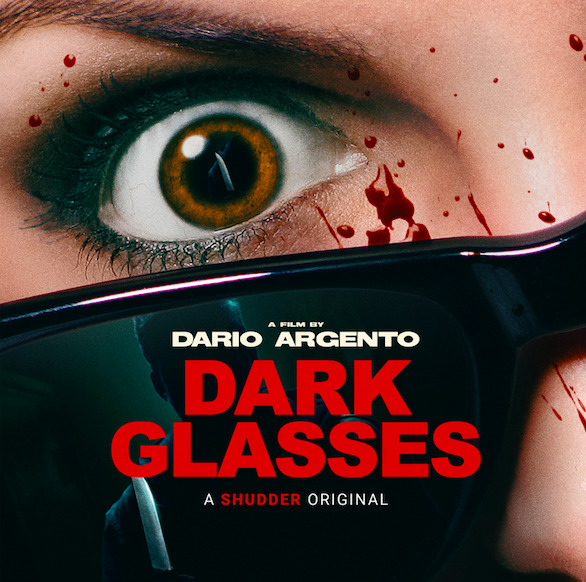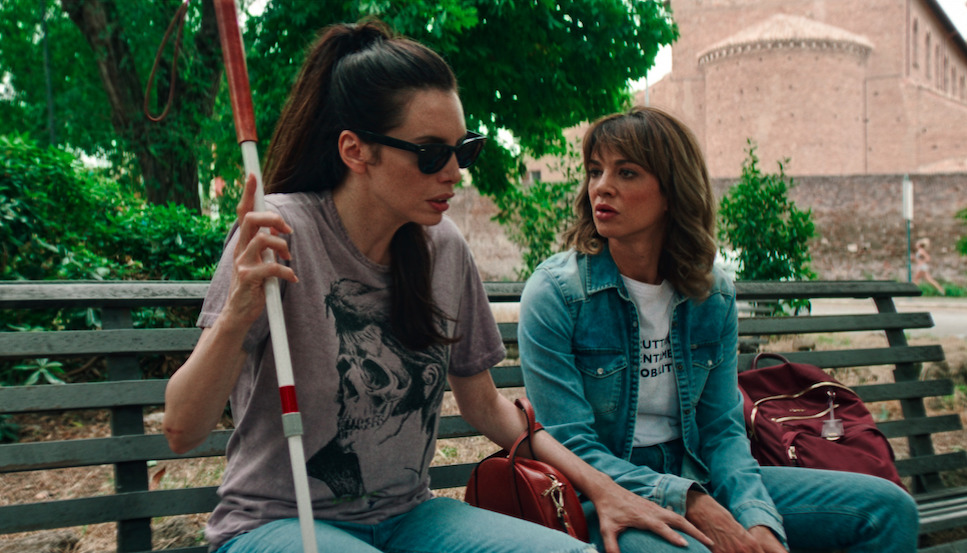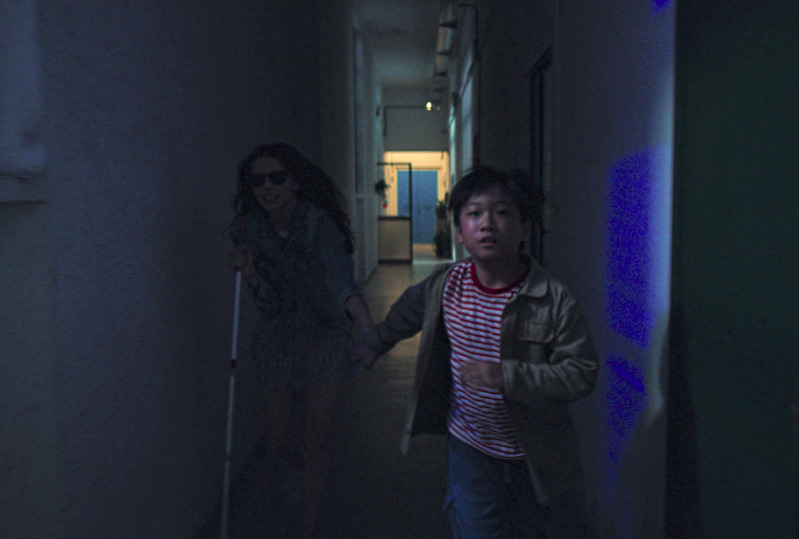
The Master of Horror, Italian director Dario Argento, ten years after his Dracula 3D returns with his latest thriller starring Ilenia Pastorelli, Andrea Zhang and his daughter Asia Argento. Dark Glasses was presented Out of Competition at the Berlinale 2022 and is going to be released by Shudder — AMC Networks’ premium streaming service for horror, thrillers and the supernatural.
The title is revealing of the circumstances that occur in the film. As an an eclipse blackens the skies on a hot summer day in Rome, darkness barges upon the protagonist after a traumatic experience. Diana (Ilenia Pastorelli), leads her peaceful professional life as a luxury escort. But when her path crosses with that of a serial killer, who chooses her as his prey, her world is turned upside down. As Diana tries to escape she has an accident that damages the Brodmann areas of her cerebral cortex, causing her complete blindness. Despite the initial shock she is determined to get on with her life, and is helped by mobility and orientation instructor Rita (Asia Argento), who follows her rehabilitation. Diana also befriends a young Chinese orphan, Chin (Andrea Zhang), who is a victim of bullying. However the killer still lurks in the darkness to finish Diana off, nurturing the narrative with the suspenseful question of who will be saved.

The acclaimed writer-director and Thrillmaster delivers a stodgy motion picture, clumsily mixing elements of suspenseful archetypes. The mysterious serial killer tries to emulate the inscrutableness of Jack the Ripper, as the bleak alleys of late Victorian London are substituted with the sizzling streets of Rome.
Dario Argento, besides evoking authors of suspense, seems to quote himself. In fact, the way in which a blind adult is accompanied by a child during the drama echoes his 1971 film The Cat o’ Nine Tails. In that case it was Lori (Cinzia De Carolis) and Franco Arnò (Karl Malden) who were actively cooperating to seek the killer of their story, very similarly to what Diana and Chin do in Dark Glasses. However, whereas in the film of the Seventies the character’s blindness was not a synonym of vulnerability, Argento’s new movie presents the sightless woman as utterly helpless throughout the investigation.
The story drags along without an actual collection of clues or analysis of the circumstances. Diana and Chin during the tireless cat-and-mouse game — where they try to escape from the killer — passively plod until the impromptu resolution arrives without their intervention.

When it comes to psychological thrillers with female blind protagonists, one of the insurmountable benchmarks remains the 1967 film Wait Until Dark directed by Terence Young, starring Audrey Hepburn. That film truly keeps audiences on the edge of their seats, whereas Dark Glasses lacks in tension and does not possess enough intrigue. It feels like a didactic buddy film in the way it is scripted. The metaphor of the sunglasses that Diana wears ever since her accident, serves as a spoon-feeding tool to underline the semantics of the film. But the allegorical significance they could have acquired to symbolise the obscurity that pervades the story — from the eclipse to the cryptic identity of the assassin — is never fully developed.
In terms of the way Argento’s movie is directed the cast performs in an academic, inauthentic way, that does not arouse any sympathetic feelings.
Even the camera movements, transitions and editing in the psycho-sexual drama all come across as artificial and anti-naturalistic.
There is an exception given by the initial scene, where the series of frames capturing the eclipse seem to homage Michelangelo Antonioni’s style. But other than this, the film falls apart as it progresses.
The attempt to follow the whodunit structures, with plots that lead to a narrow-escape, fizzles as the film is overwhelmed with grotesque representations of trauma and deviation. Dark Glasses somehow tries to revive the horrors of the Seventies and Eighties, but the result is beyond kitsch and misses the opportunity to place Dario Argento’s work back in a position of relevance within the Italian and international landscape.
Final Grade: C-

